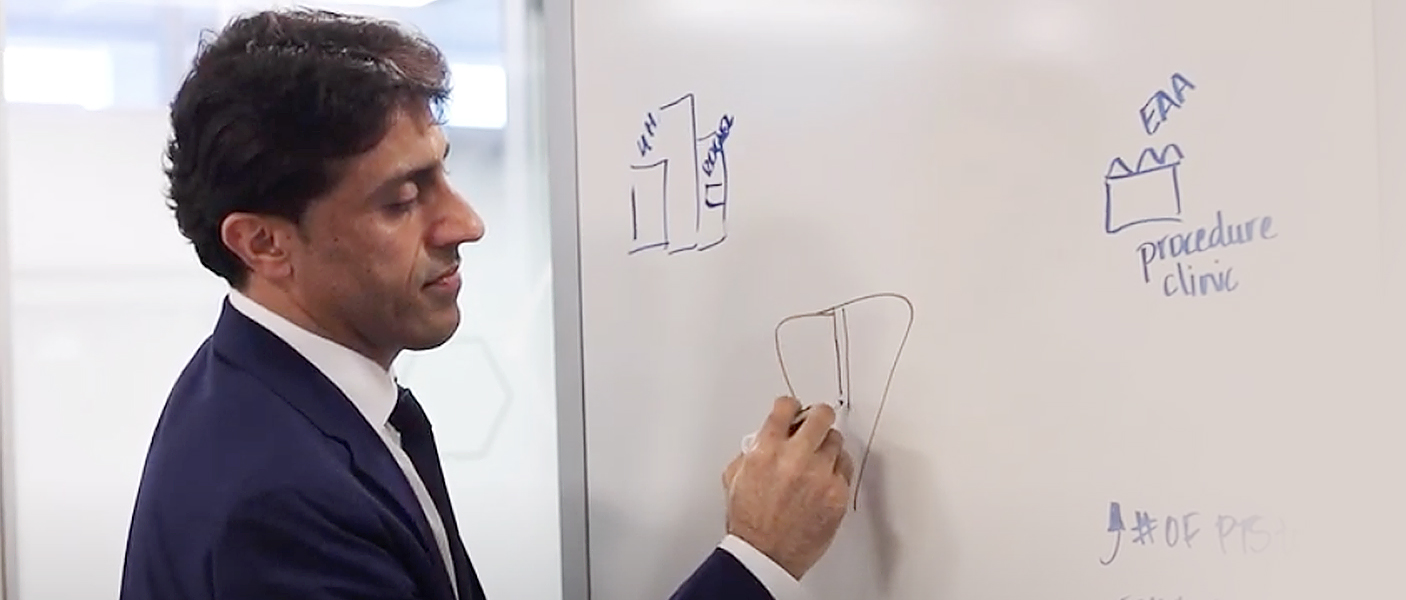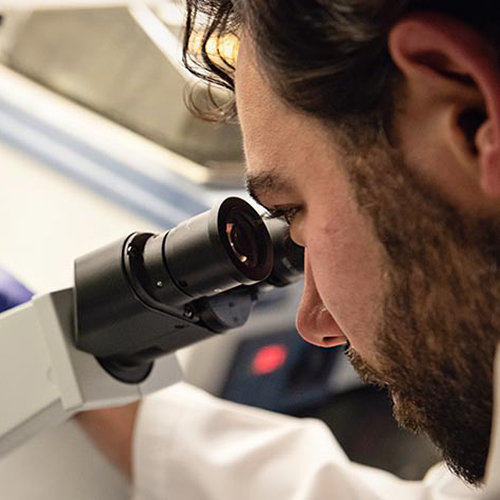News Archive
Filter by Division
Filter by Categories
New Antibody Treatment Discovered by Ward Lab Approved by FDA
April 6, 2023 / ResearchAfter several decades of hard work by many scientists at the University of Michigan Medical School and elsewhere, an antibody (anti-C5a) has just been approved by the US FDA for treatment of humans who are septic and have developed lung infections with COVID-19, resulting in severe pulmonary dysfunction requiring external lung support. The antibody, anti-C5a, was originally developed in the Dr. Peter Ward laboratory in the early 2000s. The mAb was shown to dramatically reduce lung infections in polymicrobial sepsis in mice.
Pathology's Best Kept Secret: MCP Graduate Program
September 15, 2022 / EducationA Perspective with Jessica McAnulty, MCP Student
"A Correct Diagnosis Can Be Life-Changing": Dr. Rohit Mehra
March 9, 2021 / Careers In PathologyDr. Mehra discusses his career path and how he arrived at Michigan Medicine in our latest Careers in Pathology video.
Research from Dr. Udager Published in European Urology
February 1, 2021 / CancerA new publication, generated by Department of Pathology faculty members Drs. Aaron Udager and Scott Tomlins was successfully published in European Urology. The research highlights a longitudinal cohort study centered around the serial molecular profiling of low-grade prostate cancer in order to better assess tumor upgrading [...]
Prostate Cancer Regulator Plays Role in COVID-19, Providing a Promising Treatment Lead
December 22, 2020 / Cancer ResearchClinical trials underway are testing whether drugs that target the androgen receptor – successful in controlling prostate cancer – could also work against the coronavirus. wo proteins, ACE2 and TMPRSS2, help the coronavirus gain entry and replicate within cells. TMPRSS2 is well-known to Arul Chinnaiyan, MD, PhD. His lab discovered that TMPRSS2 fuses with the ETS gene to drive more than half of all prostate cancers [...]
ASIP Rous-Whipple Award Lecture: Arul Chinnaiyan, MD, PhD
October 1, 2020 / Events11:30 am EST
Join us for a virtual event featuring the Department of Pathology's Dr. Arul Chinnaiyan, who will give the 2020 American Society for Investigative Pathology (ASIP)'s Rous-Whipple Award Lecture.
Research Regarding Invasive Squamous Cell Carcinoma Published
May 29, 2020 / Experimental PathologyThe research, which focuses on invasive squamous cell carcinomas and the precursor lesions that demonstrate concordic genomic complexity in driver genes, was just published in Modern Pathology.






 ON THE COVER
ON THE COVER
 ON THE COVER
ON THE COVER
 ON THE COVER
ON THE COVER
 ON THE COVER
ON THE COVER
 ON THE COVER
ON THE COVER
 ON THE COVER
ON THE COVER
 ON THE COVER
ON THE COVER
 ON THE COVER
ON THE COVER
 ON THE COVER
ON THE COVER
 ON THE COVER
ON THE COVER
 ON THE COVER
ON THE COVER
